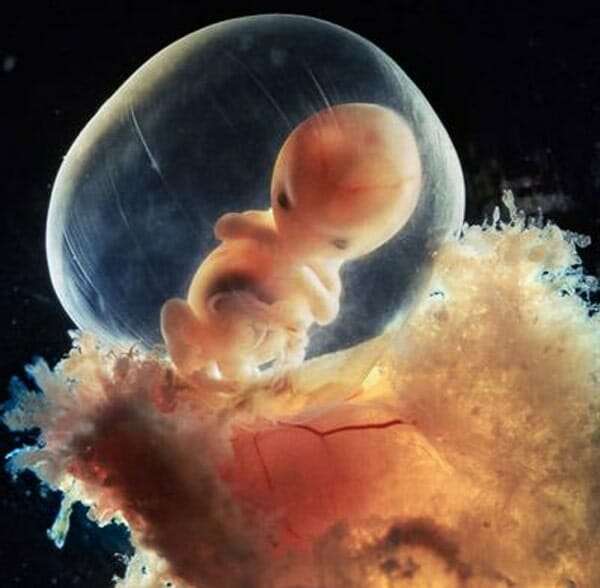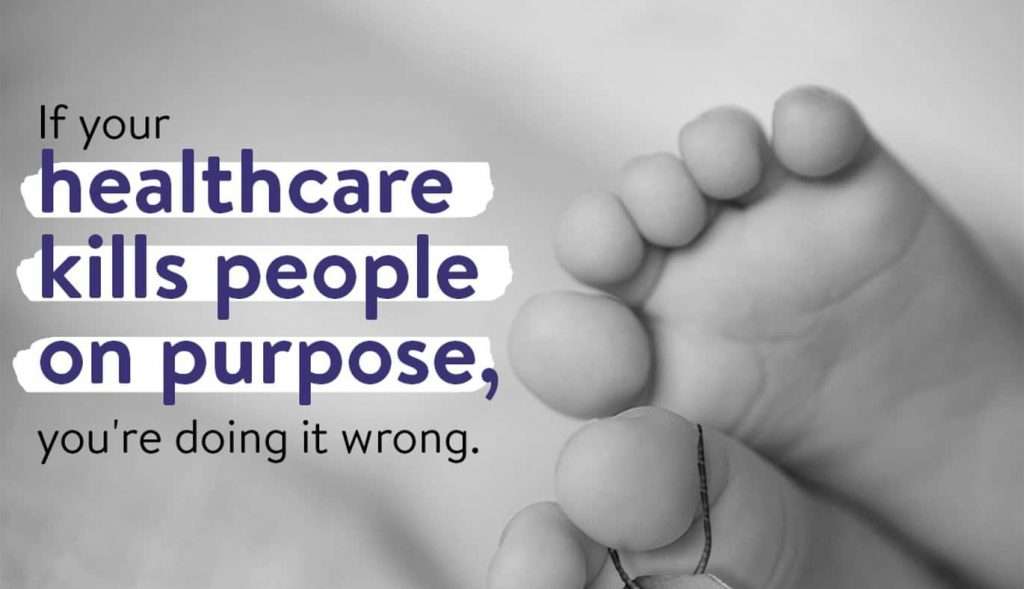

GUEST POST: Potter syndrome (also known as Potter sequence) is a fetal life-limiting condition which affects the development of the preborn child due to an insufficience or absence of amniotic fluid within the uterus. Classic presentation of Potter syndrome is caused by neither kidney forming; it can also develop downstream of hypoplastic or partially developed kidneys, polycystic kidney disease, amniotic fluid leakage during pregnancy, or other complications during fetal development. Potter syndrome results in underdeveloped lungs, limiting the breathing capability of the child once they are born which is sadly followed by death.
Unfortunately, Potter syndrome is often used as a tool of the abortion lobby to push their agenda, as seen in a recent article at the Washington Post. This hit piece on the Florida heartbeat prohibition bill cited the case of Deborah and Lee Dorbert in an attempt to demonize the pro-life law. The story relates that midway through Deborah’s pregnancy, she and her husband learned their preborn child had developed Potter syndrome, and they decided they wanted to terminate their pregnancy.

This decision came after the detection of a fetal heartbeat, and under Florida law, aborting the Dorbert’s child was prohibited. Their doctors correctly followed the abortion policy and did not grant the couple’s request for an abortion due to non-life-threatening reasons.
As the Pro-Life Generation, our hearts go out to the Dorbert family as they experience the loss of their child to a condition with no treatment. As a future medical professional myself, I understand that not only did the Dorberts’ doctors make the correct legal choice, they also made the most ethical choice according to the standards of their profession.
This is because medical professionals are tasked with providing the most effective and compassionate care possible when treating their patients, and elective, direct abortion — as was sought by the couple — is not healthcare and is not compassionate.

The procedures used in second and third trimester abortion can result in complications including incomplete abortion, hemorrhage, infection, and scarring of the uterine wall. Pelvic inflammatory disease can also result from these complications, increasing risk of ectopic pregnancy and infertility. With no treatment for Potter syndrome and elective, direct abortion presenting harm for mothers, there must be a compassionate form of care that treats both patients with equal dignity and concern.
Until we find an effective treatment for Potter syndrome and other life-ending fetal abnormalities, perinatal hospice is the answer.
Approximately 0.2 – 0.3% of newborn babies face life-ending conditions like the Dorbert baby, but for situations such as these, perinatal palliative care programs allow parents to meet their child and to fully grieve their loss. This care is fully encompassing, providing a compassionate explanation of the diagnosis, walking the parents through the emotionally strenuous pregnancy process, and counseling the parents through the grieving processes beyond the loss of the child.
Dr. Byron Calhoun, an expert on perinatal hospice, talks about the experiences and magnitude of loss as it relates to a newborn child, stating: “The grief accompanying perinatal loss of a wanted child may be more intense compared with loss of another family member. The lack of physical contact and minimal amount of time with the fetus may prevent connection within the family and minimize the feelings of loss. Memories built around the child are important in the grieving process.”

Clinical experience demonstrates the need to visualize and feel the loss that may other be covered up by the impersonal nature of the death of a child via abortion. Note a research survey by the New York Times which demonstrates that up to 85% of prenatal tests result in false positives and patients should seek genetic counseling before taking any action altering the course of their pregnancy. This is yet another benefit of perinatal hospice; the continuation of a pregnancy through birth avoids any risk of terminating a healthy preborn child.
More information on perinatal hospice as well as a list of programs offering care can be found at perinatalhospice.org. Education surrounding perinatal palliative care and the benefits for both child and parents needs to be elevated in order to provide true health care for patients like the Dorbert family.
READ NEXT: The Faces of Exceptions: 7 Celebrities You May Not Have Known Were Conceived in Rape
Share this post
Recent Posts

The “Man of Steel” May be an Alien, But Not Illegal: His Parents ADOPTED Him
15 Jul 2025
The “Little” Moments That Make a Big Impact: How Being a Regional Coordinator Fuels My Pro-Life Passion
14 Jul 2025
Abortion Brags from Lily Allen & Hat from Cynthia Nixon Enrage Even Pro-Choice Americans. Can the Pro-Life Generation Take Some Credit?
11 Jul 2025
